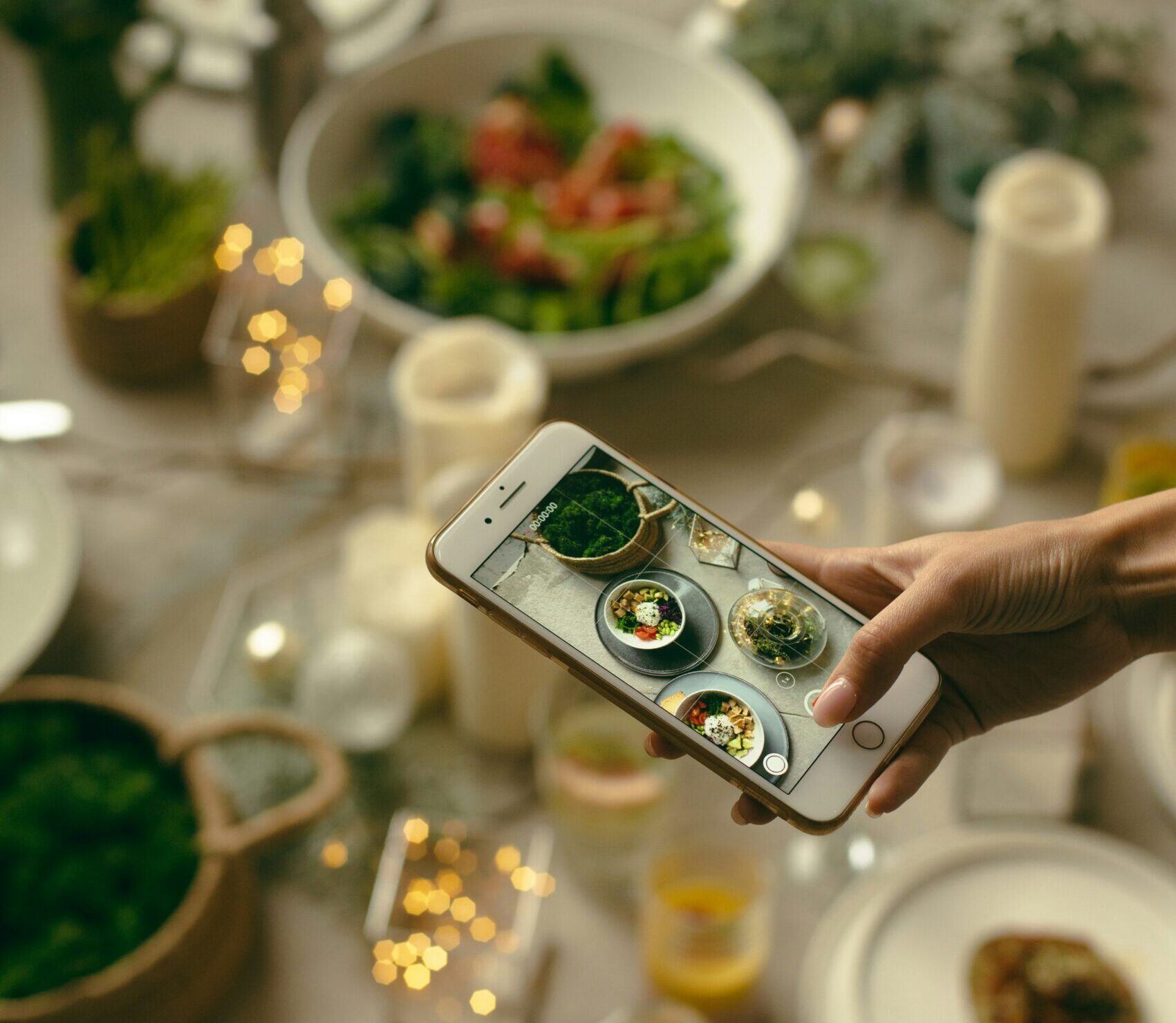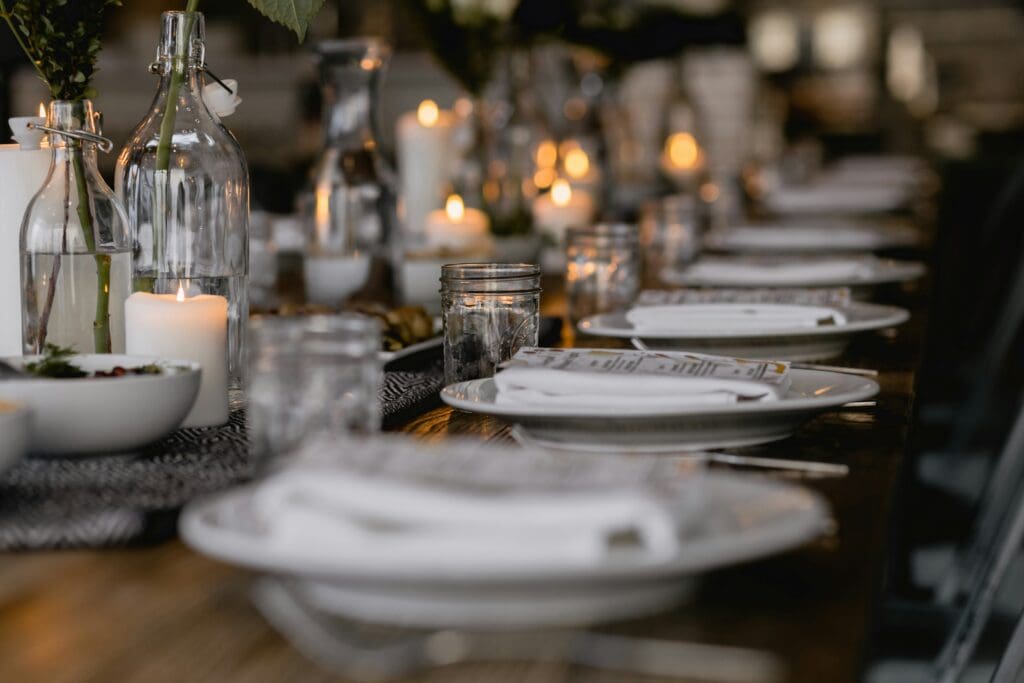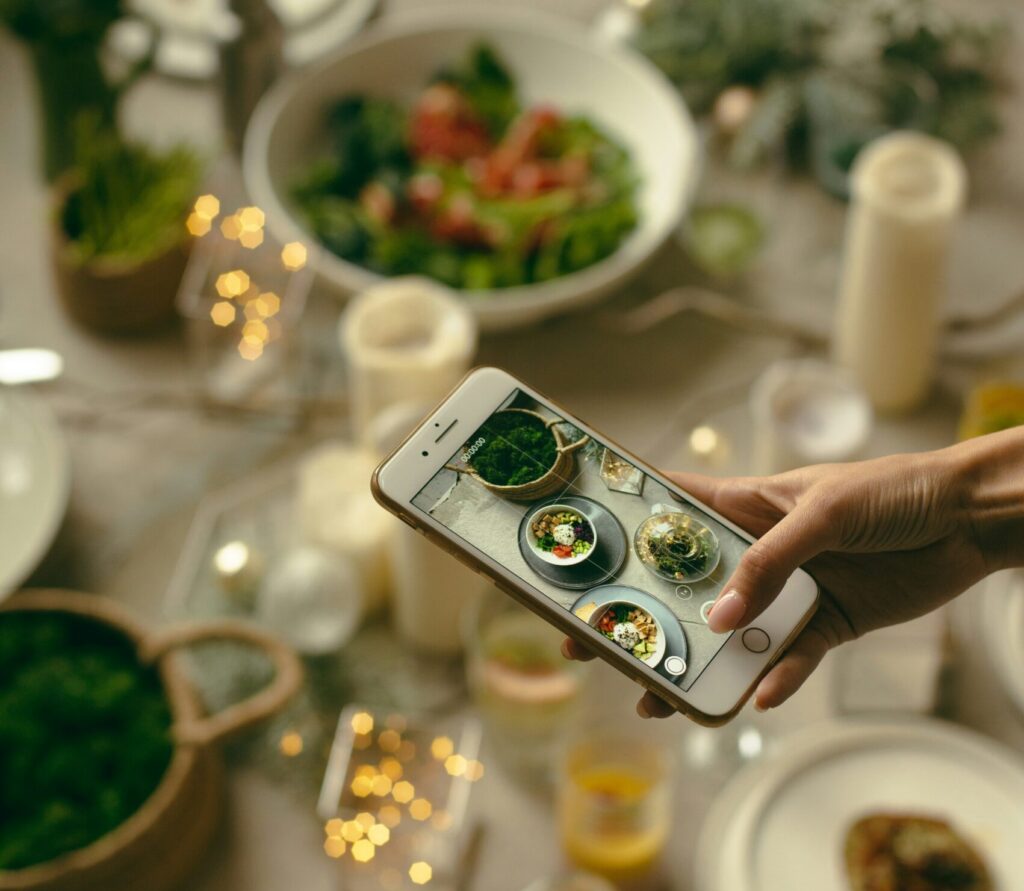5 Modern Etiquette Tips for Hosting a Dinner Party
From The Invitation to Dietary Restrictions, Here's How to Be a Fabulous Host
BY Heather Wiese //In her recurring column, “Social in Security,” modern etiquette ambassador and Bell’INVITO founder Heather Wiese walks us through a list of trusted tips you can rely on. Today’s topic: dinner party dynamics.
In her recurring column, “Social in Security,” modern etiquette ambassador and Bell’INVITO founder Heather Wiese walks us through a list of trusted tips you can rely on. Today’s topic: dinner party dynamics.
There was a time when hosting a dinner party meant polishing the silver, decanting the Bordeaux, and hoping the soufflé wouldn’t collapse under pressure. Today’s hosts face different challenges — namely, managing smartphones at the table, deciphering dietary restrictions, and navigating guests who vary between sub-par social skills and the desire to document every canapé for their social channel of choice. The stakes are no less high. Hosting, after all, is still and always will be a social art. The difference is that the rules have shifted, and graciousness now means updating the playbook without abandoning purpose.
The Invitation — and the RSVP management.
The party does not begin with the arrival of the first guest. It begins with the invitation — paper or digital. Your invitation to a dinner party (not the take-out TV sesh at your place) needs to be in writing. Date, time, and address – just in case. If you’re hosting with someone else, their name is with yours on the invitation.
In our modern era of non-committals and ghosting, being clear about a response is not only a good idea, it’s now chic. What was once a faux pas has become a modern sign of a smart host. How you express this is also key. Use a simple line on an invitation like, “RSVP to jane.smith@gmail.com (or phone number) by Friday, December 3.” If the reply line is broken into two lines, you can skip the word “to” between the reply request and the reply info. If you are inviting more casually in a text or email, on a separate line, say, “Please let me know by Friday, December 3.” Tell-tale pro-tip: Write dates correctly, “Friday, December 3” or “the 3rd of December.” It’s never “December 3rd.”

Phone Etiquette: When, Where, and Why
We’ve all been there. The candlelight flickers, the wine flows, and then someone’s face is bathed in the blue glow of a phone screen. Phones are now the elephant in the room of every dining etiquette conversation. The rules are simple, yet surprisingly not easy to follow. No phones during courses. This is for conversation — a time to be present. No phones on the table surface resting, awaiting the ring or buzz. Why? First, phones are notoriously dirty, germy things that belong on the table as much as the bottoms of your shoes. Exceptions for emergencies? Take the phone outside. If your babysitter, ailing family member, or after-hours answering service must reach you, rest your phone on your lap or on your chair so you can quietly hear the ping or feel the buzz. Then excuse yourself to quickly take care of business and return.
Hosts can set the tone by keeping their own devices tucked away or offering a spot for a “recharge while we’re dining.” For the more casual atmosphere (note the vibe change), photo-happy diners feel free to get a quick snap before dinner begins. But if you’re arranging a tablescape like Annie Leibovitz while the soup goes cold, it’s time to put the camera away. Likewise, scrolling for that actor’s name, the release date on that song, or the vacation pic you must share takes more than the time to complete your sentence – time’s up. It was a good thought you can return to later, away from the table.
Menus and Modern Palates
Today, the reality is different than decades ago. Hosts must navigate gluten-free, dairy-free, nut-free, keto, vegan, and pescatarian diets, among others. The gracious host asks ahead — and listens. You need not cater to every preference, but having one thoughtful alternative shows attentiveness. Guests, on the other hand, must remember: an invitation is not a private chef contract. If your health requires something specific, be specific about your needs and offer to bring a dish or take a suggestion as to how the host prefers to go from here. It’s a tricky situation. Handling a health restriction with grace starts with a foundational knowledge of communication etiquette rather than silently making assumptions. Sitting unable to partake in food is awkward and can potentially make the host and even the entire table uncomfortable. People view and accommodate preferences differently. Etiquette lies in the balance between a host’s effort and a guest’s flexibility and communication.

The Art of the Post
In a world where every plate is potential content, dinner parties risk turning into photo shoots. No better way to say, “I really don’t get out much” than to shoot every moment as if it’s your only foray into a civilized, curated dinner party. That being the case, some hosts appreciate a little documentation and a guest-brag on their effort and taste. The key here is discretion. Most hosts might assume that at least one guest will try to capture the amuse-bouche for their feed. If you’re not comfortable with your soirée going semi-public, say so upfront: “Tonight, let’s keep the phones at bay — I want an unplugged evening for all of us to enjoy.” For guests, the golden rule: ask before posting. Not everyone wants their home, table, or guest list immortalized online. Sophistication is knowing when to pocket the phone and simply enjoy the moment.
Curated Guest List
Food is important, yes — but the real magic of a dinner party lies in its cast of characters. A skilled host curates not just the menu but the guest list, creating an alchemy of personalities. Mixing new acquaintances with old friends adds energy. Seating charts may feel formal, but even a casual arrangement benefits from a bit of strategy. Put the raconteur next to the quieter guest, the gourmet beside the fashion editor, and always, always keep the political rivals at opposite ends of the table. Thoughtful curation is the difference between a lively evening and one that fizzles faster than flat champagne. Feel like you need to include a friend who isn’t the best guest? You don’t. Give yourself a break, for the sake of all the other guests. Curate with thoughtful grace for your guests and for yourself. By all means, have questions ready to ask each guest that will help prompt conversations. Manage engagement throughout that evening as best you can.
Ultimately, dinner parties remain timeless at their core: an opportunity to gather, to laugh, to eat, to connect. Modern etiquette executed well in two steps is first educating yourself on the old traditions, and second, managing the details of modern life accordingly. Etiquette isn’t about social elitism, but rather social fluidity and acceptance. Truly, the marker of sophistication is not whether your guests ate vegan gnocchi or grass-fed filet. It’s accomplished in leaving your home feeling considered, comfortable, and just a little more connected than when they arrived.
This is a tradition worth keeping.

















_md.png)















_md.jpeg)




_md.jpeg)